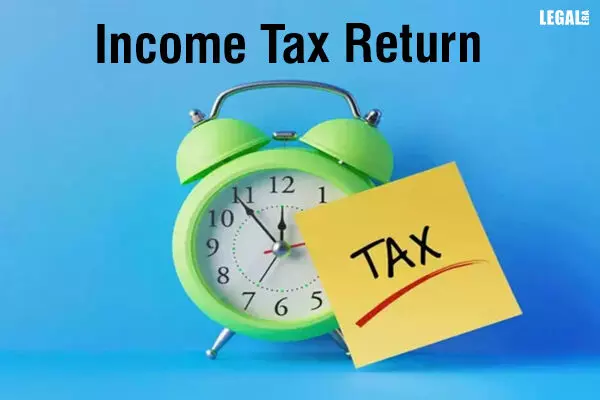- Home
- News
- Articles+
- Aerospace
- Agriculture
- Alternate Dispute Resolution
- Banking and Finance
- Bankruptcy
- Book Review
- Bribery & Corruption
- Commercial Litigation
- Competition Law
- Conference Reports
- Consumer Products
- Contract
- Corporate Governance
- Corporate Law
- Covid-19
- Cryptocurrency
- Cybersecurity
- Data Protection
- Defence
- Digital Economy
- E-commerce
- Employment Law
- Energy and Natural Resources
- Entertainment and Sports Law
- Environmental Law
- FDI
- Food and Beverage
- Health Care
- IBC Diaries
- Insurance Law
- Intellectual Property
- International Law
- Know the Law
- Labour Laws
- Litigation
- Litigation Funding
- Manufacturing
- Mergers & Acquisitions
- NFTs
- Privacy
- Private Equity
- Project Finance
- Real Estate
- Risk and Compliance
- Technology Media and Telecom
- Tributes
- Zoom In
- Take On Board
- In Focus
- Law & Policy and Regulation
- IP & Tech Era
- Viewpoint
- Arbitration & Mediation
- Tax
- Student Corner
- AI
- ESG
- Gaming
- Inclusion & Diversity
- Law Firms
- In-House
- Rankings
- E-Magazine
- Legal Era TV
- Events
- News
- Articles
- Aerospace
- Agriculture
- Alternate Dispute Resolution
- Banking and Finance
- Bankruptcy
- Book Review
- Bribery & Corruption
- Commercial Litigation
- Competition Law
- Conference Reports
- Consumer Products
- Contract
- Corporate Governance
- Corporate Law
- Covid-19
- Cryptocurrency
- Cybersecurity
- Data Protection
- Defence
- Digital Economy
- E-commerce
- Employment Law
- Energy and Natural Resources
- Entertainment and Sports Law
- Environmental Law
- FDI
- Food and Beverage
- Health Care
- IBC Diaries
- Insurance Law
- Intellectual Property
- International Law
- Know the Law
- Labour Laws
- Litigation
- Litigation Funding
- Manufacturing
- Mergers & Acquisitions
- NFTs
- Privacy
- Private Equity
- Project Finance
- Real Estate
- Risk and Compliance
- Technology Media and Telecom
- Tributes
- Zoom In
- Take On Board
- In Focus
- Law & Policy and Regulation
- IP & Tech Era
- Viewpoint
- Arbitration & Mediation
- Tax
- Student Corner
- AI
- ESG
- Gaming
- Inclusion & Diversity
- Law Firms
- In-House
- Rankings
- E-Magazine
- Legal Era TV
- Events
ITAT rules non-filing of Income Tax Return means evasion of revenue

ITAT rules non-filing of Income Tax Return means evasion of revenue
Upholds the reassessment order against the assessee under the IT Act
The Mumbai bench of the Income Tax Appellate Tribunal (ITAT) recently held that non-filing of an Income Tax Return (ITR) amounted to escapement of income.
The bench comprising Sandeep Singh Karhail (judicial member) and Om Prakash Kant (accountant member) made the observation on an appeal against the October 2019 order passed by the Commissioner of Income Tax (Appeals) under the Income Tax Act, 1961 for the Assessment Year 2010–2011.
The assessee, an individual, is engaged in the business of trading in shares and is the director of Sanghi Corporate Service Ltd.
For the year under consideration, he did not file his ITR. Based on the information received from ITD systems, reassessment proceedings were initiated against the assessee. In March 2015, a notice was issued to him under the IT Act after recording the reasons.
A month later, the assessee filed the ITR electronically declaring his total income as 'Nil'.
Thereafter, statutory notices were issued to him, and the assessee filed its reply to the information/details sought. The Assessing Officer (AO) vide his February 2016, assessed the total income at Rs.44,50,240 after making certain additions.
Aggrieved by it, the assessee appealed before the CIT(A), who confirmed the addition made by the AO. The assessee then approached ITAT.
The assessee submitted before the tribunal that he had no taxable income during the year and, hence, did not file his ITR. He said that merely because he deposited some cash, the AO initiated the proceedings.
The revenue department said it noticed that the assessee entered certain transactions, including a cash deposit of Rs.50,000, a share transaction of Rs.20,000, and a TDS return of interest, other than the interest on securities. But despite that, he had not filed the ITR.
The tribunal, thus, observed, "If there is reasonable information based on which it can be said that the income chargeable to tax has escaped assessment, the proceedings under the IT Act can be validly initiated."
The court further said that it was well-settled that the sufficiency or correctness of the material could not be considered at the stage of recording reasons.
Dismissing the claim of the assessee, ITAT ruled, "Based on the tangible material available, the AO had reason to initiate proceedings under the IT Act."




